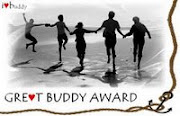
Lee Smolin, "something of an upstart" who nevertheless received a doctorate in Physics from Harvard, published a book entitled The Life of the Cosmos, proposes a theory of what he calls cosmological natural selection. He asks, "What if all the things we think of as absolute--the speed of light, the tug of gravity, the motions of elementary particles--have also been shaped through the years by the subtle forces of evolution? ...Why shouldn't such phenomena be subject to change, just as forms of life are?...What I am suggesting is that a similar shift must take place in our understanding of physics and cosmology." Smolin notes that the random chances of a universe springing into existence with the grace and intricacy of ours are absurdly small--one in 10 to the 29th power, or 10 followed by 29 zeroes. This leads him to suspect that conditions oin the infant universe were not left to chance, but were finely tuned by the trial and error of evolution, in a process that reaches further back in time than can be measured by cosmic clocks. But how could the universe have evolved from anything else, unless it was not the first? Unless it was at the end of an evolutionary chain that spans many thousands of cosmic generations? Smolin's theory is highly speculative. Still, it's intriguing, and proposes that beyond the horizon of every black hole is the beginning of another universe, and time itself then stops being a linear flow, but "branches like a tree, so that each black hole is a bud that leads to a new universe of moments." In her new book Year of the Comets, Jan Deblieu tells of speaking with a stargazing friend who tells her, "When you look at stars through a telescope, you can taste space." Toward the end of her book, she writes: "Will we ever manage to find the truth about our Universe? Will we recognize it if we happen to glimpse it?
We are like snails in a salt marsh, crawling up and down stems of grass with only the merest inkling of the size of the world in which we live. We are a small cosmos, born of a black hole in a previous universe ... We are a leaf in a current, or a bubble boiling in a huge pot, bouncing around with others that we can neither hear nor see but whose presence we hold in our minds.
"Oh!" I echo her silently. I imagine the whole of our tiny, perfect world--people, animals, plants--watching the sky together, saying as one, "Oh!"















5 comments:
I was just reading about this book in the foreward to Richard Dawkin's latest, The Ancestor's Tale. Sounds fascinating.
By the way: I can't recommend Dawkins highly enough. Fluid, conversational, expert and interesting writer on a fascinating subject.
I'll take a look at Dawkins book!
You can read the foreward here free and see what you think.
Thanks. I ordered a copy from Amazon!
My Dawkins book came today! Also another book I ordered at the same time: IN FACT The Best of Creative Nonfiction with an introduction by Annie Dillard.
Post a Comment